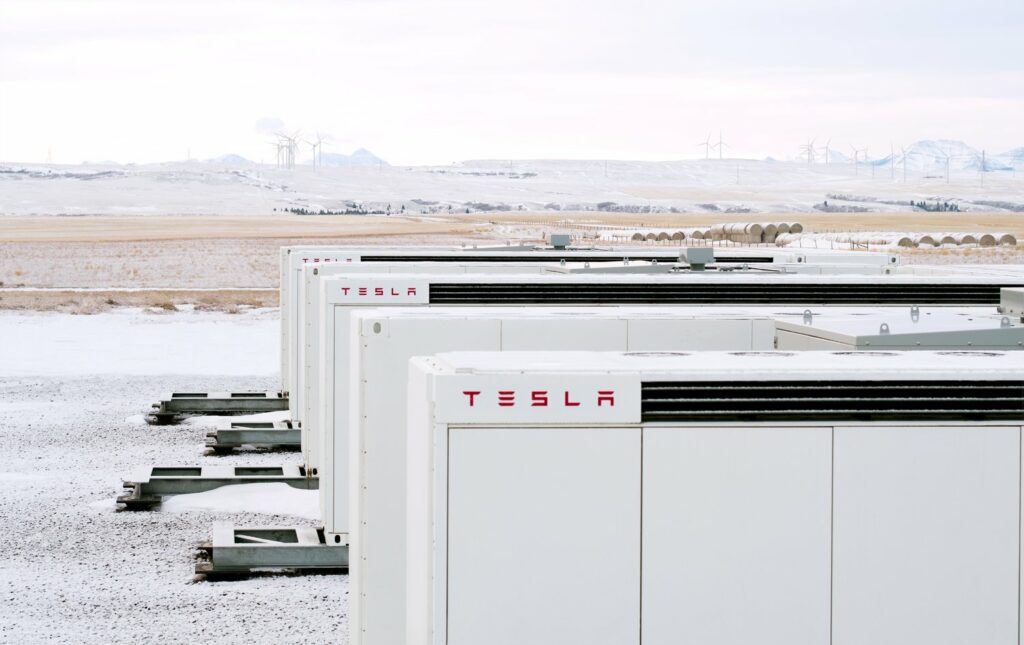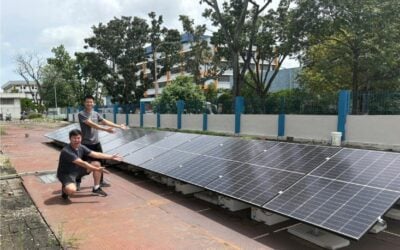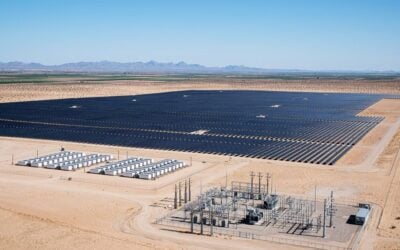
Three solar power plant projects are in development in Alberta, Canada, which will add nearly 300MW of battery storage to the province’s grid.
Alberta’s first grid-scale battery project, Windcharger, a 10MW/20MWh battery energy storage system (BESS) at a wind farm, was only brought online in late 2020 by developer TransAlta Renewables.
Enjoy 12 months of exclusive analysis
- Regular insight and analysis of the industry’s biggest developments
- In-depth interviews with the industry’s leading figures
- Annual digital subscription to the PV Tech Power journal
- Discounts on Solar Media’s portfolio of events, in-person and virtual
The province’s first solar-plus-storage project was only given approval in April of that year, combining 13.5MW of solar with 8MW/8MWh of batteries.
Alberta-headquartered developer Greengate Power Corporation established a project subsidiary called Jurassic Solar to begin development on a project called Jurassic Solar+ in early 2021.
Anticipated to have a 35 year lifetime, Jurassic Solar+ will be 216MWac of solar PV, combined with 80MW/80MWh of BESS using 60 inverter/transformer stations and connected to the Alberta Interconnected Electric System (AIES), the province’s transmission grid.
It will be built on privately-owned land, and Greengate Power held an online ‘open house’ event to share information on the project with the community and local stakeholders last week. The developer hopes to gain permitting and approvals during this year, for construction to begin in Q2 2023 and come online around a year later.
Meanwhile, Westbridge Energy Corporation, a greenfield renewable energy developer with its registered headquarters in Vancouver, is seeking approvals of its own for two large-scale solar PV plants colocated with batteries.
Westbridge offered a corporate update to investors at the beginning of March which included notes on its Georgetown Solar and Sunnynook Solar projects.
Georgetown will be a 278MWp solar plant, Sunnynook a 236MWp PV project. Each would share a site and interconnection to the grid with a 100MW BESS.
The developer is preparing its application to the regulatory Alberta Utilities Commission (AUC) for approval on Georgetown, having gotten a “low risk” rating for an environmental impact submission in February. It is also nearing the end of its Connection Process Stage 2 with grid operator Alberta Electric System Operator (AESO).
Westbridge said further design and engineering activities on Georgetown will begin this quarter. Sunnynook is also in the Stage 2 Connection Process, with its remaining environmental studies, stakeholder engagement and other permitting activities to be initiated soon.
“The recent volatility of power prices and intermittency of renewable energy generation has reiterated the increasing importance of developing storage projects,” Westbridge CEO Stefano Romano said.
“Battery storage assets allow to store generation until it can be economically dispatched into the grid as well as providing services to the grid with the target of improving reliability, supporting renewables integration and deferring transmission upgrades.”
A handful of other interesting battery projects are in development in Alberta: vanadium flow battery provider Invinity Energy Systems was recently awarded a contract to supply a 2.8MW/8.4MWh system at a 21MWp solar plant in a project part-funded by the provincial government’s Emissions Reduction Alberta scheme.
Another is a 180MW BESS which would be charged from a nearby hydroelectric plant which TransAlta is developing, called Watercharger.
Aerospace and defence tech company Lockheed Martin has said the first large-scale pilot project for its own proprietary flow battery technology will be at another Alberta solar PV plant.






